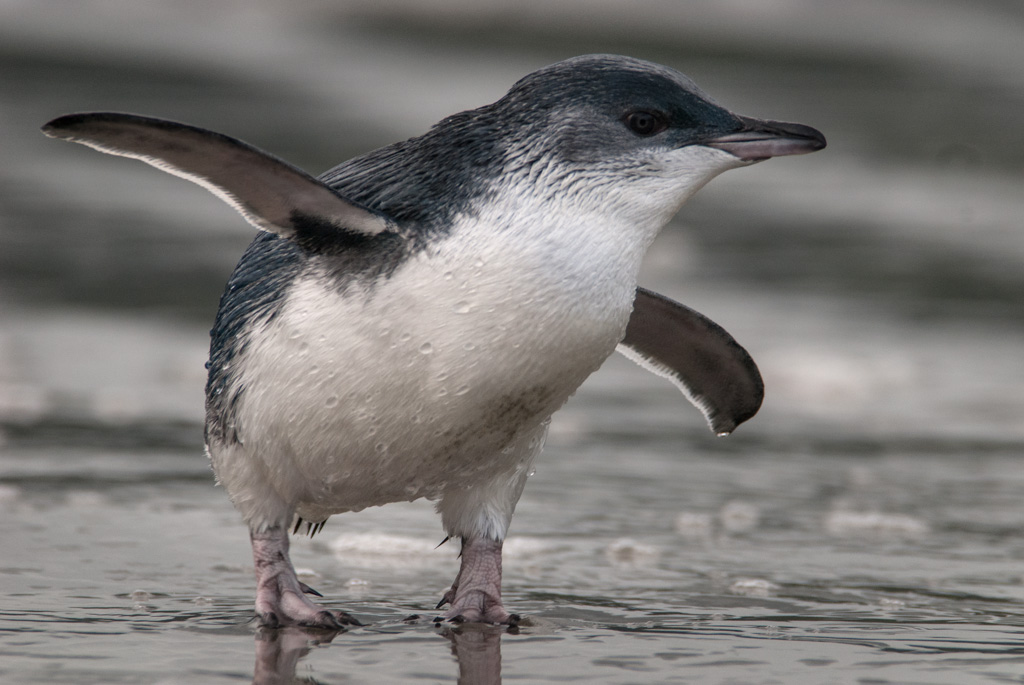Little Blue Penguin Survey
On the 16th of September, members of the Doctors Point trapping team and Halo Project staff undertook the third annual survey of little blue penguins on the stretch of beach from the Doctors Point carpark to the Purakanui side of Mapoutahi Pa. We broke the beach into three sections with one team in each scouring the rocks, banks, cliffs and shrubs for any signs of a penguin burrow.
After two hours of searching, the total number of penguins observed stood at five. A further five burrows were found that penguins probably use as homes regularly but did not contain any birds at the time of the survey. By comparison, a total of 11 birds were found in the first surveys conducted in February 2016 and February 2017. This does suggest a decrease but could be due to the fact that the surveys were conducted at different times of year, and so different stages of the penguin lifecycle. A follow up night survey will be conducted in the coming weeks and will hopefully give us a better indication of the total population size. Past night surveys have resulted in more penguins being observed (15 in 2017) so hopefully the same happens this time.
The small number of birds observed means that we need to make sure we’re doing everything we can to help this little population continue to survive and grow. The Halo Project trap network established in the area is helping to control one of the biggest threats facing the penguins, stoats. While this is an excellent step in the process other threats must also be managed and they can’t all be done by us. If you’re walking your dog in an area where you know or think there might be penguins, please keep it on a leash at all times. It only takes a second for a dog to grab and kill a penguin. Even the best behaved dogs pose a threat. Also trying to ensure that any recreational activities on the beach have minimal environmental impact will help to preserve the nesting habitat of the birds.
James Tweed - Project Support

